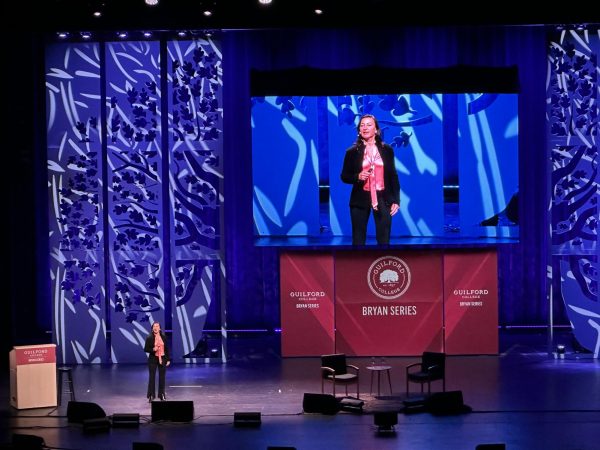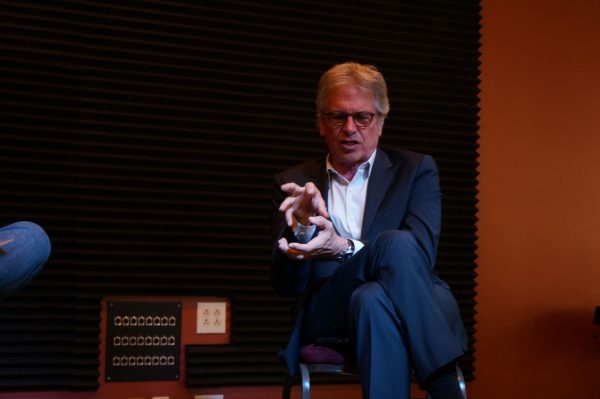New cyber security major aims for ethics
As society endures the joys and complications of technological advancement, the ethical dilemmas we face remain. At their monthly meeting on Nov. 4, Guilford College faculty approved a new cyber and network security major structured to address those issues.
Set for spring 2016, the program will focus on designing and implementing cyber security solutions, network investigatory processes and ethics.
According to documents provided by the College, the new major will “fulfill a need for those planning to engage in securing information systems and network investigatory work.”
Required are 10 courses: seven core and three elective. Of the core courses, four are new to Guilford: CTIS 370 CNS, CTIS 371 Computer Forensics, CTIS 471 Advanced CNS and a two-credit CTIS 320 CNS Seminar as a required non-technical course, aimed to address ethical concerns with a socio-political background.
Electives, such as 365 Ethics in a Digital World and PSCI 366 Global Terrorism, were chosen to bolster the program’s focus on digital security with a global perspective.
“The way we proposed the major was by adding a truly liberal arts component to it,” said Associate Professor of Justice and Policy Studies William Pizio, who co-founded the major along with Assistant Professor of Computing Technology and Information Systems Chafic Bou-Saba. “This will allow students to not only understand the technical skills associated, but to also put those skills into an ethical context.”
The decision to move the proposal further was based heavily on the major’s ethical focus.
“Guilford is the right place to have a cyber and network security major,” said Charles A. Dana Professor of Psychology Kathrynn Adams. “Other schools may just focus on the practical aspects and what is required to do the job. Guilford talks about ethics which enriches the program. I want ethical people driving technological advancement.”
Currently, Greensboro Technical Community College offers a two-year degree in cyber security. North Carolina A&T University also has a cyber security track associated with its computer science program. The new CNS major will aim for prospective students looking for an alternate approach to information security.
“Several of my students have continued their education at A&T in their Information Assurance program,” said Astrid Todd, associate professor of computer technologies at GTCC. “A CNS program at Guilford (College) would likely affect student enrollment here positively as some students might be interested in continuing there.”
Despite a broad range of faculty support, including support even from other institutions, criticism of the program still exists.
“If we are to offer a major in cyber security, I would want it to include, as part of its core, a four-credit course on ethics and technology,” said Professor of Philosophy Nancy Daukas. “A course that encourages students to see the complex social and ethical context that generates both a need for cyber security and a potential for its misuse (is necessary).”
This opinion gained traction in the philosophy department.
“I’m very skeptical that anyone, regardless of department, could teach a course that’s only two credits, but that’s supposed to deeply explore CNS’s ethical dimensions, its sociopolitical dimensions, current trends in the field of cyber and network security and professional standards,” said Associate Professor of Philosophy Vance Ricks ‘92. “I don’t think the format and the intended course content complement each other.”
Despite the mixed reactions from faculty, the new major has sparked interest in the College’s future.
“All institutions, the world over, have to revitalize their programs in order to be responsive to change,” said Professor of Sociology & Anthropology Edwins Gwako. “(Guilford) is preparing students to be effective and efficient participants in a global village. Technology is very much at the heart of everything we do. We need to equip our students with the tools to become change agents in a technologically driven world.”
According to the proposal, “The major will be taught with the same level of faculty interaction that students currently get and will promote Guilford’s distinct interdisciplinary focus by offering courses across several different departments. Guilford’s program will fulfill these goals within the Guilford tradition.”





